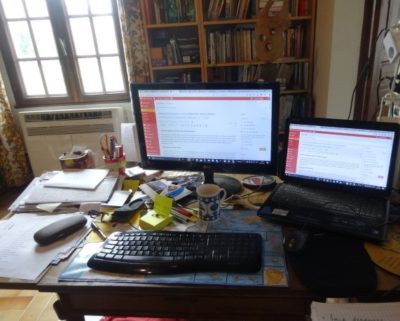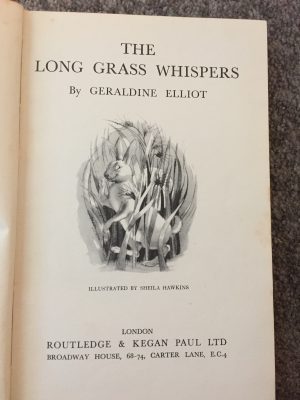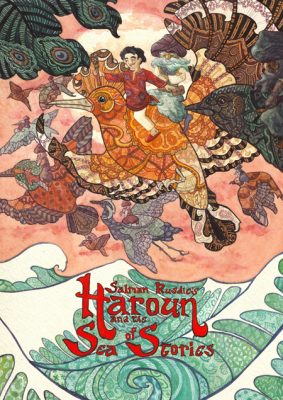I want to give up storytelling

Ruth’s work station with large screen, mug of tea and post-its.
I want to give up writing – my efforts are going nowhere – nobody reads my stories – it’s such hard work – I can never be good enough – I spend all my days doing it – and I do it alone – shut away in my study – tapping away at a keyboard – deleting – editing – rewriting – what for? Why? For you? For me?
Stories will not give me up
But stories can’t give me up because I am a story too and stories made me and make me. The stories that made me are millennia-old and these are the same stories that made you. These are the stories that were sung, shouted, danced, whispered, written down, were secrets, were saved and were banned and made sacred. These are the stories that became your bedtime stories and are written into your blood, bone, dreams and culture.
Older than the Bible stories – Dinosaurs and Gilgamesh
There are the stories written into the fossilised bones of dinosaurs that I read about when I was a child and are still every day being rediscovered and reread by scientists.
There’s the story of Gilgamesh and Ishtar – stories older than the hieroglyphs in the pyramids of Giza.
Greek Myths and Legends
There are the ancient stories, myths and legends of the Greeks that were transcribed into Roman tradition and culture that held me in thrall together with strange English Fairy Tales about Nix Nought Nothing and The Lambton Worm and Turkish saints who killed dragons, stories about knights as green as grass and a woman weeping over the pot of basil that contains her lover’s head.
Children’s Stories and Ancient Tales

Frontispiece of The Long Grass Whispers by Geraldine Elliot
There were the stories my mother read to me or that I listened to on old shellac recordings – Alice in Wonderland, Oliver Twist, The Children of the New Forest, Kidnapped, Treasure Island, Robinson Crusoe.
Stories from Africa about wise tortoises and clever hares, sneaky jackals, untrustworthy hyenas and vain lions that go back beyond Aesop’s Tales into the origins of us all.
The Neverending Tales
There are neverending tales of One Thousand and One Nights and all those stories told to save lives and keep our spirits lifted and full of hope. There is the Bible – a conglomeration of stories gathered over thousands of years about Creation, God and the Word, witches, kings, priests and prophets with love songs and psalms and history and a poor carpenter who preached love and kindness. So many stories that shape how we see the world and ourselves – they are bred into our bones and brains. We cannot do without our stories but – they can be dangerous for both the readers and the writers!
Death and Silence, Censorship and the tongueless

Haroun and the Sea of Stories by Salman Rushdie
Now is the time to honour Salman Rushdie, a writer who metaphorically had his tongue cut out and who faced death every day but who still wrote a story about the importance of stories for a child – for his son. I once saw Salman Rushdie during the interval at a London theatre while he was still under the Fatwa for writing The Satanic Verses. There was a susseration and an electric vibration in the air as he appeared. It was as if he were under an evil enchantment.
“Nothing comes from nothing, Thieflet; no story comes from nowhere; new stories are born from old – it is the new combinations that make them new.”
― Salman Rushdie, Haroun and the Sea of Stories
“Khattam-Shud,” he said slowly, “is the Arch-Enemy of all Stories, even of language itself. He is the Prince of Silence and the Foe of Speech. And because everything ends, because dreams end, stories end, life ends, at the finish of everything we use his name. ‘It’s finished,’ we tell one another, ‘it’s over. Khattam-Shud: The End’.”
― Salman Rushdie, Haroun and the Sea of Stories
So In the end it is that writing and storytelling won’t give me up and so I can’t give it up either no matter how hard it is sometimes and how hopeless my internet connections.
4 Comments on “We are all made of stories, we make stories and we are stories”
You cannot be serious, Ruth! There is no way you could give up storytelling. You have a fertile (I might say over-active) imagination and you must know there are lots of people waiting, even if anxiously, for your latest words.
Of course I can’t – I’m not working on a series but I am working on a number of books at the moment! Thank you John
I have never, ever, thought of giving up writing. I was born with writing in my blood. It took half a century to get my first novel published, but it was well worth the wait. Self-publishing was never part of the plan or my 24 published books since 2001 would have been in print long ago, but I have always preferred to go through traditional channels and know that my work is good enough for professional editors. I don’t know how many people read my books, but I get good reviews from my readers as well as my publishers and editors – and this, for me, is a lifetime dream come true. You, Ruth, are an excellent writer and although your books are not my particular style, I would be very disappointed if you gave up now. Sometimes the flame dies down a little – mine has of late – but I’m determined to rekindle it because I have many stories begging to be told and my passion for writing is just as strong as ever.
Gosh June – unlike you I do have doubts from time to time but its also true that I can’t stop writing. You have done so well getting all 24 books published while I have taken a rather different course. I guess the two of us are two interesting examples of different ways of going about the business of publishing but thanks for you encouraging words – I was hoping to have comments from writers who like me – do struggle occasionally.